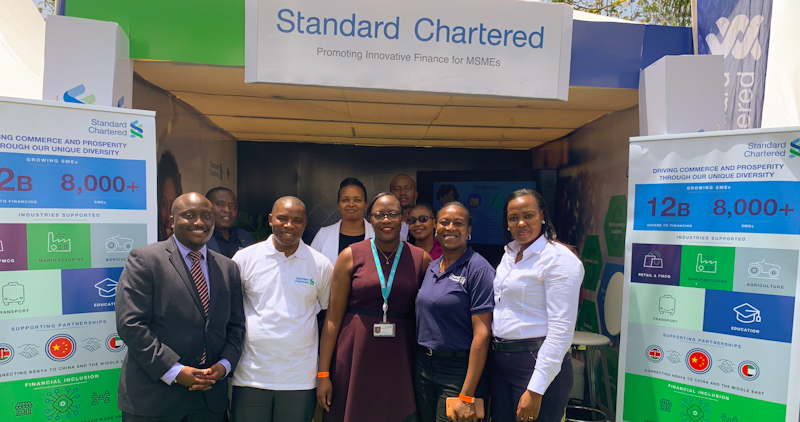Micro and small enterprises are the backbone of the Kenyan economy with more than 1.56 million licensed and 5.9 million unlicensed, according to National Treasury data.
As a result, they contribute to the employment of approximately 13 million Kenyans every year. Supporting the MSME sector to access credit is, therefore, critical to sustainable growth.
Further, businesses are being urged to be more aggressive in order to create employment and spur economic growth towards achieving vision 2030.
“One of the biggest barriers to their growth is limited access to credit,” according to the Kenya Bankers Association (KBA).
The small and medium enterprises have therefore sought financing from lenders such as financial institutions. Financing is a major ingredient to the success of any business.
Kariuki Ngari, chief executive of Standard Chartered Kenya Friday in the ongoing KBA CEO Chat themed ‘Credit Scores and Access to Credit’ shared insights on the Strategies of Enhancing Enterprise Creditworthiness.
Creditworthiness is a measure of how enterprises’ eligibility to acquire financing.
While several factors help bankers determine a businesses’ creditworthiness, the ability to repay debt stands out most.
Kenyan Banks Told They Will Thrive If Credit is Extended to Medium Enterprises
The first thing that banks will do is to make sure that the business actually exists, and that it is operating legally. The second thing is the nature of the business and its viability.
“It is very important to make sure that any money banks lend (which ultimately belongs to depositors) should be repaid. The ability to repay the debt is very important so the bank will look at business cash flows to ensure the business can actually pay the debt,” said Ngari.
Profitability, cash flow, liquidity and capital structure (or how much capital the shareholders put into the business), are important in gauging the creditworthiness or the ability of the business to take on debt. The most important in our assessment is can the business pay its debts from its existing cashflows.
Three things an enterprise can do to enhance their creditworthiness
Good Record Keeping: It is very important to have good records of your sales, your costs, or in business-speak.
Proper Management of Your Accounts: An enterprise should ensure returns as required by regulatory authorities, such as tax returns, are up to date. A business should also demonstrate that it can manage its financials well, for example by not having bounced cheques.
Right Management: Good management ensures that there is a viable business that lasts and can meet its obligation. The nature of our MSMEs in Kenya is typically a one-person business, and this person has to be there all the time which is not always possible and therefore, puts the business at risk. So it is important to invest in good staff.
The Basics Before Approaching Financial Institutions for a Loan
Role of Credit Reference Bureaus
According to Ngari, “Today, the credit reference bureau record is very important.”
Credit reference bureaus are a big enabler to accessing credit because banks no longer need to broad brush all applications, they can treat each application on its own merit and price accordingly.
“This is good for you because if you have good credit bureau references, you can get cheaper pricing. Customers who pay their loans on time have a good rating. The process is still ongoing but I think the bureaus in Kenya have come a long way in the years they have been in operation.”
According to the World Bank, credit bureaus and registries are essential elements of the financial infrastructure that helps to address the issue of access to financial services, including credit.
By sharing credit information, they help to reduce information asymmetries, increase access to credit for small firms, lower interest rates, improve borrower discipline and support bank supervision and credit risk monitoring.
The Stanchart chief executive said KBA is undertaking various interventions to ensure banks are promoting lending to MSMEs. Such interventions include the Inuka Enterprise program that seeks to enhance customers’ capacity to operate their business and therefore access bank credit.
The Stawi program is a digital lending collaboration and the government and other development partners are working on partnering with the sector to provide credit guarantees where necessary.





1 Comment
Pingback: Creditinfo’s New Scorecard to Help SMEs Access Easy Funding